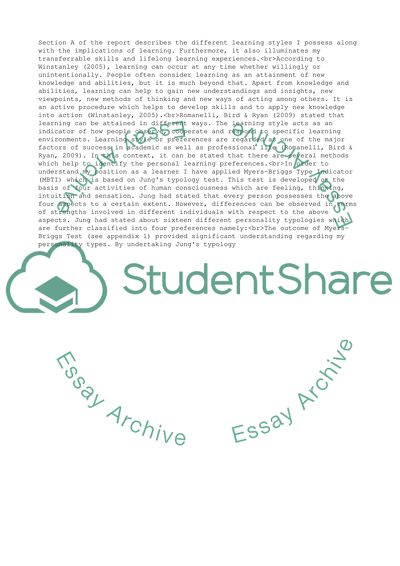Cite this document
(“Who am i as a learner Essay Example | Topics and Well Written Essays - 3250 words”, n.d.)
Retrieved from https://studentshare.org/business/1613761-who-am-i-as-a-learner
Retrieved from https://studentshare.org/business/1613761-who-am-i-as-a-learner
(Who Am I As a Learner Essay Example | Topics and Well Written Essays - 3250 Words)
https://studentshare.org/business/1613761-who-am-i-as-a-learner.
https://studentshare.org/business/1613761-who-am-i-as-a-learner.
“Who Am I As a Learner Essay Example | Topics and Well Written Essays - 3250 Words”, n.d. https://studentshare.org/business/1613761-who-am-i-as-a-learner.


